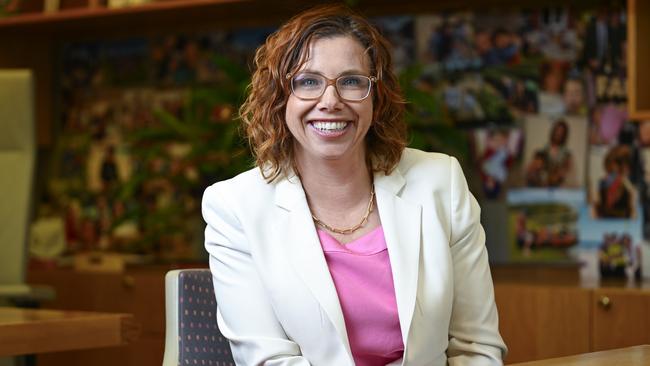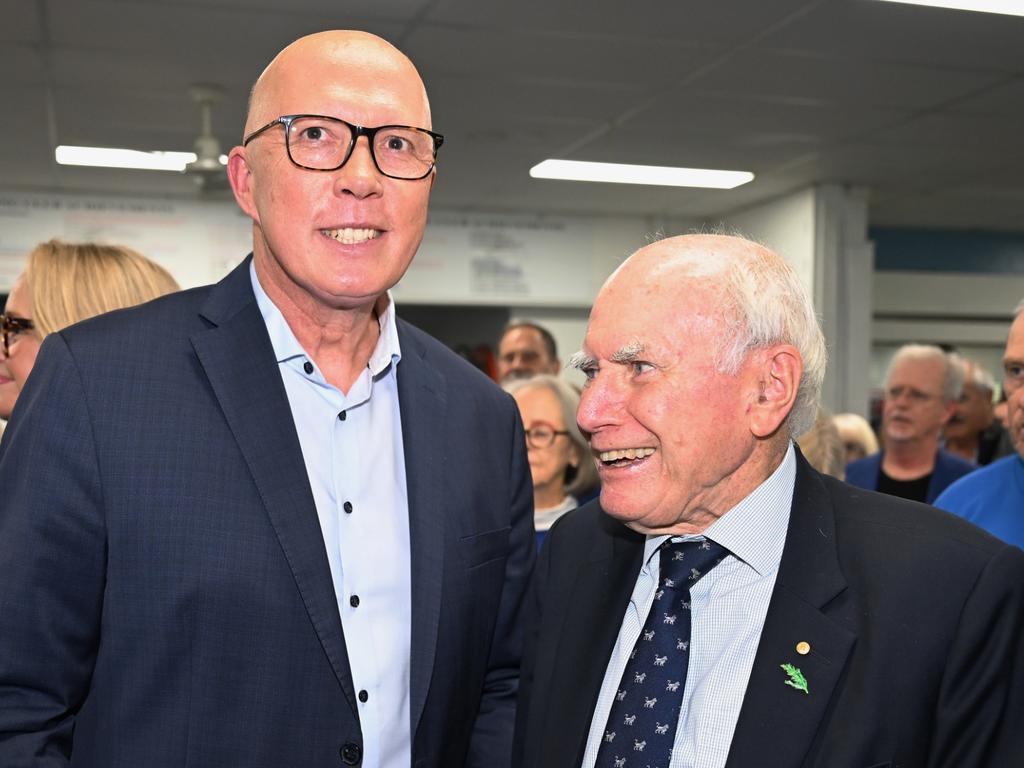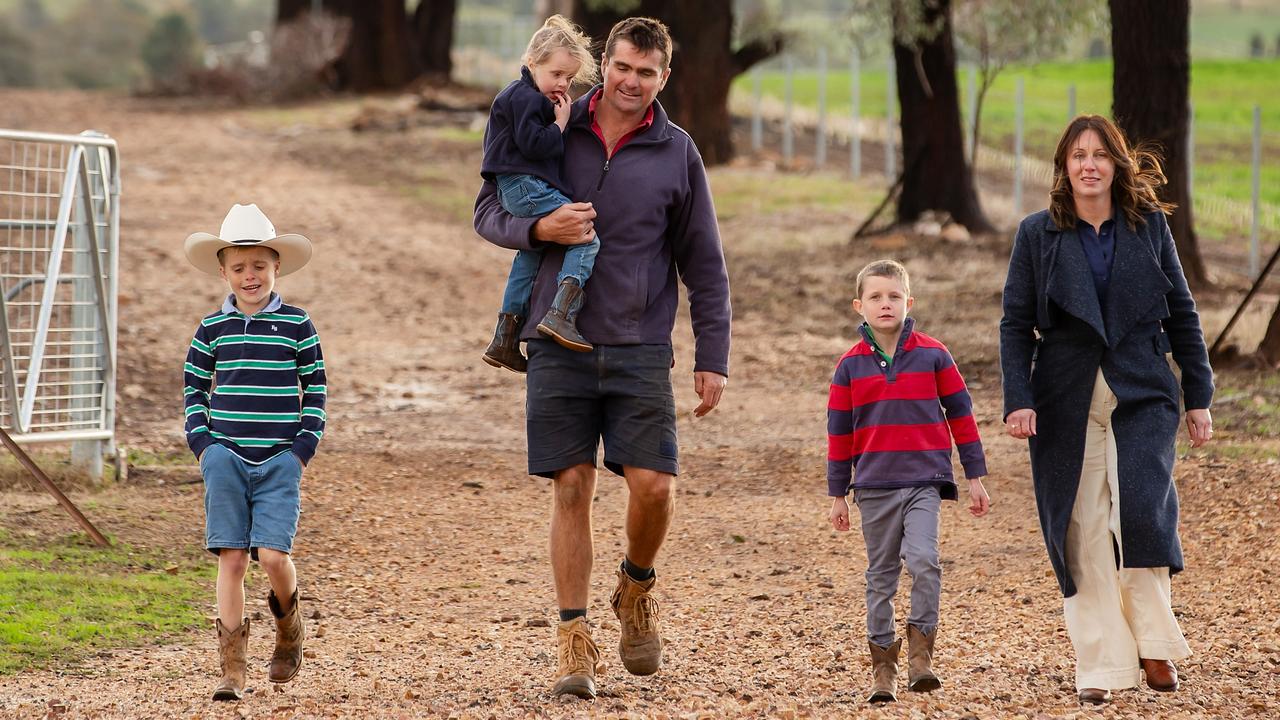From shop floor to federal cabinet, minister recalls valuable workplace lessons
Fostering more co-operative workplaces has been identified by Amanda Rishworth as a central goal as she reveals plans for her new industrial relations portfolio.

Amanda Rishworth will never forget the moment. It was 11.15am on November 17, 2004, when 61-year-old Carole Schaer was shot dead by her estranged husband as she worked in the handbag and shoe section of the Myer store in Adelaide’s Rundle Mall.
Rishworth, at the time a 26-year-old organiser with the shop assistants union, was acutely involved in the response to the horrific incident which was witnessed by staff and shoppers.
She can vividly remember the funeral and the impact on Carole’s family, friends, colleagues and employers. It drove home to Rishworth the intersection between workplaces and domestic violence and influenced her to be a passionate advocate for family and domestic violence leave, later co-sponsoring a bill to the federal parliament.
“It was horrendous,” Rishworth, the new Employment and Workplace Relations Minister, said when reflecting on the awful incident and its aftermath during an interview with The Australian.
“There was this concept that family violence was a domestic issue. But it flows to workplaces in a very profound way. That became so clear at that moment for me.
“The other thing I took from that is the employer wanted to do the right thing. The union came in and worked with the employer and the employees. Everyone in that really difficult circumstance wanted to do the right thing, and working together to support everyone was really profound.”

Fostering more co-operative workplaces has been identified by Rishworth, 46, as a central goal since assuming the portfolio from Murray Watt. Next Tuesday, she will convene a high-level meeting of national employers and union leaders to encourage “open dialogue” between the government, business and organised labour on industrial relations, especially Labor’s ambition to spread enterprise bargaining in workplaces.
“I think we all need to be working on the productivity agenda,” Rishworth said.
“I think we all have a role to play, but for me, when it comes to workplace relations, I see the real opportunity is about more co-operative workplaces and resolving disputes more quickly, and that involves having everyone at the table.”
It was another experience when Rishworth was a young retail worker that not only showed her the importance of unions but gave her unwanted, direct exposure to the impact of the Howard government’s workplace relations laws.

From the age of 16, Rishworth had been balancing her school work with casual shifts as a night-filler for the American retailer Toys R Us. She was a committed worker, prepared to accept unscheduled shifts at a moment’s notice and even dressing up as the store’s mascot, Geoffrey the Giraffe, for store promotions.
But her work life changed when she had a car accident, causing injuries that left her unable to bend, lift, or rip open cartons for a time. She spoke to her floor manager who assured her she would be able to return to work after she recovered.
The manager left the store, however, and Rishworth subsequently received a letter telling her not to come back to work. Before then, she had received no verbal or written warnings, only good reports and thank you letters from the company for her extra work. She was devastated.
Rishworth recognised the letter as one sent to casual workers employed for the Christmas rush only and then let go. She sought out the assistance of the Shop, Distributive and Allied Employees Association, the retail workers union where she would later work with her now cabinet colleague, Trade Minister Don Farrell, and Peter Malinauskas, who went on to be South Australian Premier.
Rishworth had earlier refused the company’s offer to sign an Australian Workplace Agreement, an individual contract introduced by the Coalition, believing it cut her workplace rights and conditions, including scrapping tea breaks.
During initial discussions with the SDA, the company gave no assurances Rishworth would be re-employed or that if she was it would not be conditional on her signing the AWA.

The SDA filed an unfair dismissal application in the then Industrial Relations Commission, and the company engaged a multinational law firm to contest the teenager’s claim. After more discussions, and the assistance of the commission, Rishworth was reinstated receiving a written assurance that, when her doctor certified she was fit to return to work, she would be given hours in a fair and equitable manner.
Rishworth described the experience as a “pretty quick awakening”. “I know this sounds a bit naive but I was 19 at the time,” she said this week. “The laws made in Canberra actually had a direct impact on my work and my working conditions.
“First and foremost, I would say that was a pretty big wake-up call for me as a young worker. What I also realised was having employee representation, having a union to support you, is really important.
“But it also taught me that actually having a union, having unions and employers sit down and work through issues, is really, really critical to resolving disputes.
“I think there’s this sort of concept that if unions are involved it will create disputes. Well, there are disputes at workplaces often, and having unions involved actually provides a structure to resolve those disputes. So going to (the issue) of co-operative workplaces, I learnt early on that unions can provide a really important role. For me, that was very critical.”
She said the experience also showed her the importance of having an independent commission to resolve disputes and examine issues. “That stewardship of an independent commission is really critically important,” she said.
Her former union has wasted little time in seeking Rishworth’s support since she assumed the portfolio, asking the minister to intervene in the commission in support of its bid to scrap junior rates for adult workers.
Questioned about her position on the case and a number of Fair Work proceedings, Rishworth stressed she was in her “early days” as minister and her initial focus was on implementing election commitments, including laws to protect penalty rates in awards and scrapping non-compete clauses for low and middle-income earners.
Asked about the threat by Transport Workers’ Union leader Michael Kaine to shut down the nation’s transport in support of the union’s campaign for higher pay and conditions, Rishworth also played a straight bat, noting it was early in the bargaining process.
“I want to see deals struck through enterprise bargaining between employers and employees, and I want to see, quite frankly, people getting outcomes, and wages going up, and better conditions for workers, and more co-operative workplaces delivering productive gains through enterprise bargaining,” she said.
Under Labor, industrial action was down, enterprise bargaining was up and wages were growing, she said. “That is the type of outcome I’m really focused on.”

Rishworth, who recently secured a seventh term as the member for the South Australian seat of Kingston, has served in cabinet as social services minister and more recently the National Disability Insurance Scheme minister, following the pre-election resignation of Bill Shorten.
Referring back to her experience as a young worker and union organiser, she expressed optimism about what could be achieved when employers, employees and unions worked together.
“I was impacted by the laws. I now have a stewardship over those laws and that sort of trajectory is not lost on me, and the responsibility that comes with it,” she said.







To join the conversation, please log in. Don't have an account? Register
Join the conversation, you are commenting as Logout